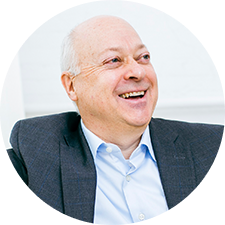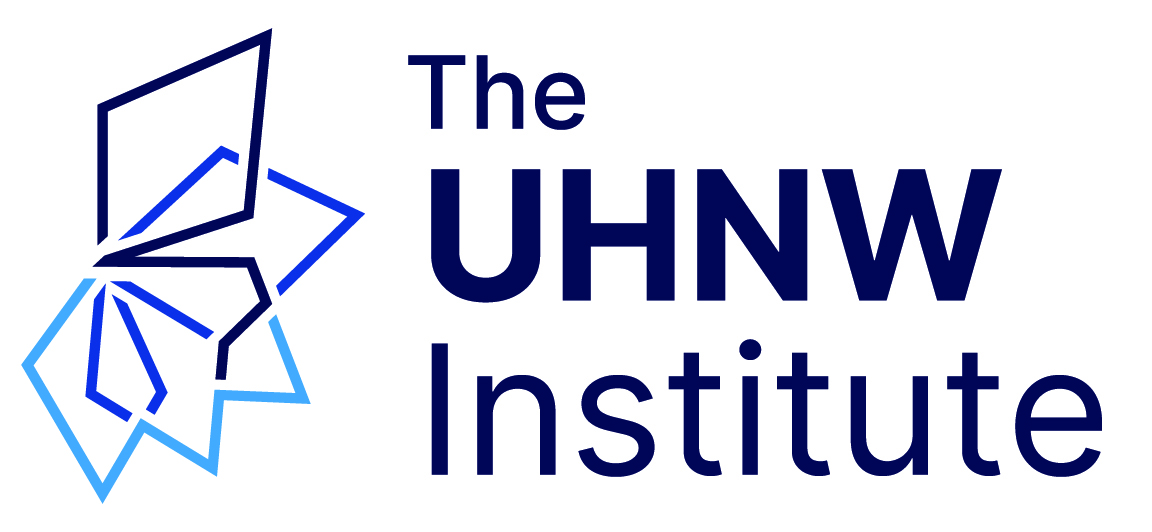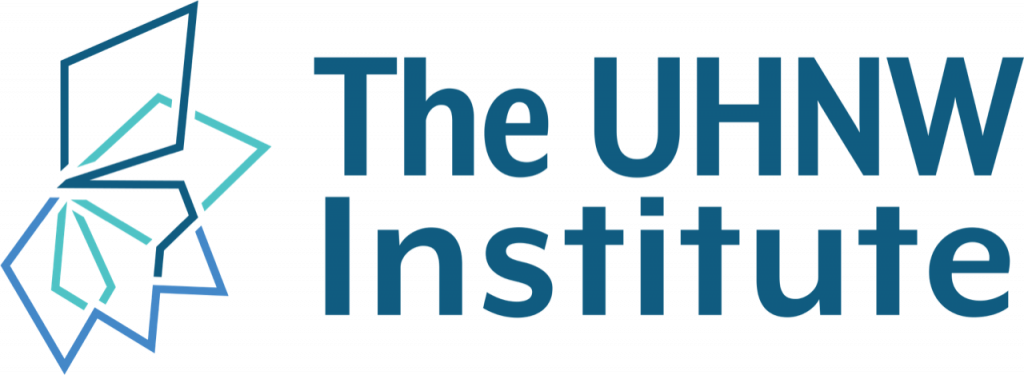Board Member Highlight: Tom Mccullough
 The UHNW Institute is pleased to feature our quarterly conversation highlights with Tom McCullough, co-founder, chairman and CEO of Northwood Family Office. He is a frequent speaker on issues relevant to families of wealth and co-authors several books including Wealth of Wisdom: The Top 50 Questions Wealthy Families Ask. He is an adjunct professor and executive-in-residence at the University of Toronto’s Rotman School of Management, a member of the Editorial Board of the Journal of Wealth Management and a member of the board and faculty of the Ultra High Net Worth Institute. He was awarded ‘Best Individual Contribution to Thought Leadership in the Wealth Management Industry (North America)’ at the 2020 Family Wealth Report Awards.
The UHNW Institute is pleased to feature our quarterly conversation highlights with Tom McCullough, co-founder, chairman and CEO of Northwood Family Office. He is a frequent speaker on issues relevant to families of wealth and co-authors several books including Wealth of Wisdom: The Top 50 Questions Wealthy Families Ask. He is an adjunct professor and executive-in-residence at the University of Toronto’s Rotman School of Management, a member of the Editorial Board of the Journal of Wealth Management and a member of the board and faculty of the Ultra High Net Worth Institute. He was awarded ‘Best Individual Contribution to Thought Leadership in the Wealth Management Industry (North America)’ at the 2020 Family Wealth Report Awards.
McCullough shares his thoughts on current and future trends, the obstacles and changes he sees within the industry and more.
- As it pertains to UHNW client needs, what are the most significant trends you’re seeing now?
One big trend I’m seeing is broadening involvement in family wealth. Aging wealth holders want their rising gens to understand the wealth and the structures that will be passed on to them or that they will be asked to steward for future generations. There is a lot more focus on learning, information recording and sharing and developing the right kind of governance, especially after a founder is gone.
Another is simply the rising level of complexity families face in almost every component of their lives. Families themselves are more diverse, spread out and complicated than ever before, and their emotional needs seem to be greater in this modern world. Geopolitics and capital markets are confusing, and the pace of change seems to be speeding up. And the number and types of financial products and services available to families seem to be at a fever pitch. It’s hard for many families to make sense of it all.
- Due to those needs, what are the biggest changes happening NOW within the industry, and how will they impact the families we serve?
I think these client needs are driving an evolution to better advisors – more educated, collaborative, with more skills in more areas (including integration and project management) and with EQ, not just IQ.
One of the key developments I am seeing is the rise of the integrated advisor. This role has grown out of families’ confusion and their need for an integrated and multi-generational perspective. It is also a result of their frustration with the traditional service models that can be siloed and product-oriented, lack a central strategy and overlook the dynamics within the family. A family office is probably the most common type of integrated advisor for ultra-high-net-worth families, and that’s why we have seen such rapid growth in this sector.
- What will the integrative wealth management industry look like ten years from now?
It will be different people. A lot of baby boomer advisors (many of them founders) in the family office and integrated wealth field will be retiring over the next decade, and the next generation of advisors will move into leadership roles. These younger folks have the opportunity to continue the good work that has been started and make changes where they should be made. I’m excited to see where it will go.
It will be more professional. The integrated wealth field has evolved in different ways in different corners of the industry, but now it is coming into its own as a professional discipline, and it is likely to be a growing presence in the family wealth landscape in the years to come. UHNW clients can be challenging to service and require advisors with a unique set of skills. These advisors need training, accreditation and professional standards. Remember that, in the Middle Ages, barbers used to do surgery. It wasn’t until much later that surgeons became a profession in their own right. Phew!
It will be better. The integrated advisory field is growing and developing in leaps and bounds with a small but amazing group of leaders who are passionate about serving clients in an expert, holistic, objective and sensitive way. We are learning so much, and there’s a good chance it will be massively better in 10 years than it is today.
- Keep looking into your crystal ball… How will the wealth management industry be disrupted?
I suspect AI will impact all of us in ways we haven’t even thought of yet. I think it will continue to allow us to automate mundane tasks, help with data and time management and be a source of added inspiration in writing reports. It will probably also have a big impact on certain fields where there are standard responses to standard questions – possibly legal document creation, basic customer service teams, rudimentary client discovery questions, and possibly even some parts of asset allocation. I believe there will still be a lot of need for wise, intelligent, creative, intuitive, self-aware, flexible and caring humans to help families navigate the various opportunities and challenges ahead.
- When looking for talent within your firm, what are the three key traits you’re looking for?
Assuming they have the requisite skills, experience, personal integrity and fit with a client-oriented family office culture, I always look for these traits in people.
Energy and initiative. I really like people who are positive and have a can-do attitude. They tend to bring proactive solutions, not just problems, and they move things forward. Clients love it and it motivates other staff, too.
Thoughtfulness – in both senses of that word. They are wise. They think about things before reacting. They understand the context of a decision. They turn a problem over in their mind (and probably discuss it with others) before jumping to the easy answer. Which helps make them trustworthy. And they are kind. They think about their words. They know they are dealing with human beings.
Quiet confidence. Families rely on us and on our expertise and experience. We are often the “doctors” of our clients’ financial lives, and they count on us to be skilled, sensible and level-headed in our advice and counsel – always balanced with humility. It takes time to build and earn confidence, but I look for and nurture “green shoots” of that kind of confidence in our people.
- Share a time you/ your firm ‘missed the mark’ or failed, and what did you learn from it?
There are always many mistakes to learn from, especially in a relatively new field, like family offices, and when starting a business from scratch, which we did 20 years ago. Technology comes immediately to mind. Like most of us, I have a love-hate relationship with technology. It is so helpful when you find a system that works well and so frustrating (and costly) when it misses the mark. It seems like the technology industry still has a long way to go to really understand the needs and constraints of the integrated advisor/ family office world, despite many promises to the contrary. I guess that’s why Excel is still so popular!
- In order for this industry to better serve UHNW clients, what infrastructure can you envision needs to be built to train and develop the ‘integrated advisor?’
Most UHNW clients have complex financial affairs and family systems. They need advisors who understand the whole picture in an integrated manner and can help them thrive in every way. We need more educational programs, including full university and professional programs and designations, to develop and train new and existing integrated advisors. We need a combination of accreditation, certification, standards and professional bodies to boost competence and credibility, and to help families find the right advisors. The UHNW Institute is proactively working with industry and educational experts to help make this happen.
- In writing Wealth of Wisdom and creating the incredible companion podcast, what surprises did you learn along the way?
When Keith Whitaker and I actually started to write down the top 50 questions wealthy families have asked us over our careers, I was a bit surprised to realize that most people had pretty much the same questions. And most of those questions were about life, not just money — how to make sure kids turn out well in the face of great wealth, how to handle the tricky moments of life, like prenups and mental incapacity, how to deal with family conflict, how to give away money well, how to find a trustworthy trustee, how to leave a good legacy. Beautiful stuff really, and a privilege to be a part of this kind of discussion with families.
- What’s the focus of the next book you want to write?
Another Wealth of Wisdom book, for sure. I really like that model — a compilation of many authors’ voices on the important issues. Maybe something on “How to be a Great Integrated Advisor?”
- Share one fun or interesting fact about yourself that few people know.
I love building trails in the forest. We have 40 acres of bush behind our family cottage and have built five kilometers of hiking trails on it. We (and others) use them all the time.
- And finally, finish this sentence… If I had one day left on this planet, I would…
Walk the trails with my family.
______________________________

